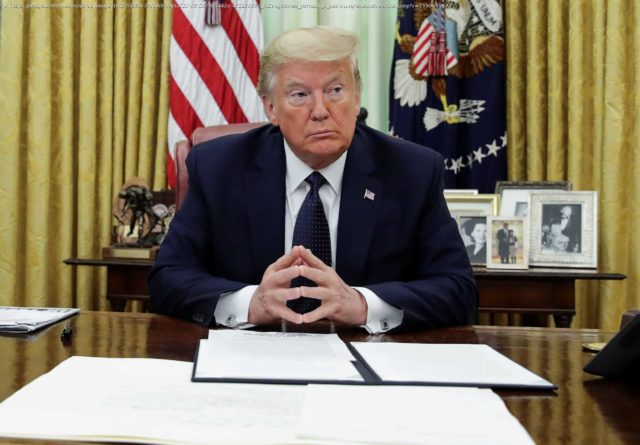The social media war between President Trump and Twitter over free speech, hate speech and content moderation shows again that tech CEOs prefer to argue over fake news than real regulation.
The social media content debate has flared up to a level of intensity in recent days that we could never have imagined. Earlier this week, President Trump took to Twitter to suggest that there would be inevitable bias coming from the use of mail-in ballots – implications that Twitter affirmed amounted to misinformation. Twitter, which has long had a mechanism by which it can flag content disseminated by public figures while keeping it online, used it for the first time against President Trump’s content, noting that his claims about mail-ins were misleading, and linking to a page featuring more information about mail-in voting.
The response from the administration was swift: a social media executive order targeting the content policies of internet firms. The president’s new policy was attacked by public experts immediately, with many scholars suggesting that legally speaking, the order was a mess in that it attempted to override the longstanding Section 230 of the Communications Decency Act, which proffers internet firms immunity for content-takedown decisions.
The attention to content policy issues only redoubled Friday morning: Trump and the official White House account tweeted that « when the looting starts, the shooting starts, » in reference to the George Floyd protests – words that Twitter fingered Trump for yet again, flagging the tweet on the basis that it glorifies violence. The scrutiny over content issues does not appear to be waning at all soon.
That scrutiny over content policies is indeed important. The world is focused on the matter of passing content policy reforms, aimed at keeping offending content off of internet firms’ platforms. As recent events in many parts of Europe, Sri Lanka, India, Brazil, and throughout the United States — most noteworthy, perhaps, the genocidal conduct of Myanmar military officials — clearly indicate, internet firms need to do more to keep their platforms free of disinformation, hate speech, discriminatory content and violence.
But we must not forget that discussion of content policy regulations is a black hole of sorts in our present political climate. There are two reasons for this. The first is political conflict, particularly in the U. S., over how and how much we should maintain the national commitment to free speech in the forum of consumer internet platforms. The debates surrounding First Amendment rights are rife with controversy in the U. S., where conservatives have raised deep concerns with the account suppressions of such far-right thought leaders as Richard Spencer, Jared Taylor, and Laura Loomer, who have spread the spirit of white supremacy through their tweets, posts, and videos.
and I believe more critically — the standards applied in regulating hate speech, disinformation and other classes of offending content will vary greatly throughout the world. Different cultural norms, ranging from the fairly liberal to the ultra-conservative, exist between countries and within countries. It will be a monumental challenge for civil society, national governments, and international organizations to arrive at a set of norms that the internet should apply in perpetuity. This is a task that will necessitate many hard discussions over many years — and even after all that deliberation, we may have no clear path forward on the syndication of global standards.
We must categorize policy discussions around hate speech, disinformation, terrorism, and the like as matters of content policy and treat them independently of a second class of regulations: economic regulations that attack the business models of Silicon Valley internet firms, focused around privacy, transparency, and competition.






